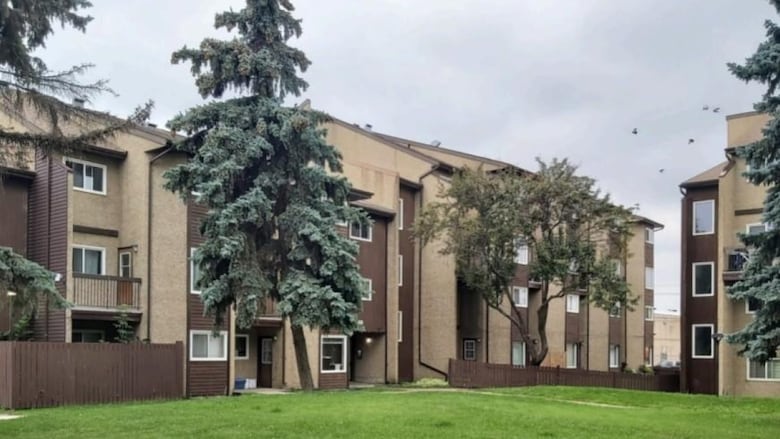Proposed incentive program aims to boost downtown Edmonton student housing
Program could offer $30K grants for new student units in Edmonton's core

A proposed city incentive program could make housing more accessible and affordable for students in Edmonton, advocates say.
The proposed downtown student housing incentive program aims to address some of the city's housing policies and strategies, by encouraging more developments in certain areas of Edmonton's core. City council will discuss the proposal on Aug.13.
Funding for the program would come from the Canada Mortgage and Housing Corporation's Housing Accelerator Fund, which would be used to incentivize the development of downtown student housing.
The city would provide grants of up to $30,000 per new student unit created, the report said.
The report states the program would be "the first of its kind in Canada, leveraging its funding source to address the gap in student housing."
If the proposal is approved by council, building permits could be issued for around 500 housing units by November 2026.
The report states that the program has two main priorities: increasing downtown revitalization and student housing.
Lindsey Butterfield, vice-president of government relations and policy with BILD Edmonton Metro, a group that represents real estate developers, said a program like this could address some unique challenges that students face.
"We have a gap between demand for housing and supply for housing and students are in a unique position. They may be coming to Edmonton without a lot of other social supports, not knowing anyone, so that they can pursue studies," she said.
"They also have a lot of costs with not necessarily the income to match that related to tuition, having to work part-time jobs again while they pursue their studies."
She noted Edmonton has a substantial student population with several post-secondary institutions.
The Edmonton housing needs assessment report from 2023 identified that students were among multiple demographics, that faced heightened risks for housing insecurities.
That report identified that certain areas in downtown, including what it calls the warehouse campus sub-area, near Norquest College, would be suitable for more student housing.
Butterfield estimates that between MacEwan University and Norquest College, both schools bring about 30,000 students a day into the downtown core.
"I think the opportunity here is that we can connect a bunch of desirable outcomes, making sure that students have a great place to live that's safe and convenient, as well as bolstering new retail to move into the area," she said.
Abdul Abbasi, vice-president external with the U of A's student union, said rental prices are hard on student budgets and one of the biggest reasons the campus food bank has seen a massive increase in demand.

"So it is something that we hear a lot from students, students have to choose between a roof on their head and food on their table," said Abbasi.
With the university planning to increase its student population from 44,000 in 2023 to 50,000 by 2026, he said student housing needs to catch up.
For MacEwan's president and vice-chancellor Annette Trimbee, the downtown student housing incentive, if passed, would show that the city is listening to the student population.

MacEwan is currently working on a pilot project to tackle the housing needs of their students.
She said surveys conducted on her students have suggested that many want a room and bathroom of their own, but don't mind sharing kitchens and living areas with multiple people.
Trimbee said a proposal like this could spark more conversations about more diverse housing needs in the city.
"Ideally, we want to understand what students need and accommodate their specific needs. But I don't know if it's so different from seniors, for example. There's a tendency to think that it's best to separate everybody," she said.
"There's no one-size-fits-all. Just as our students are diverse, so are the types of housing that we think will accommodate students."

